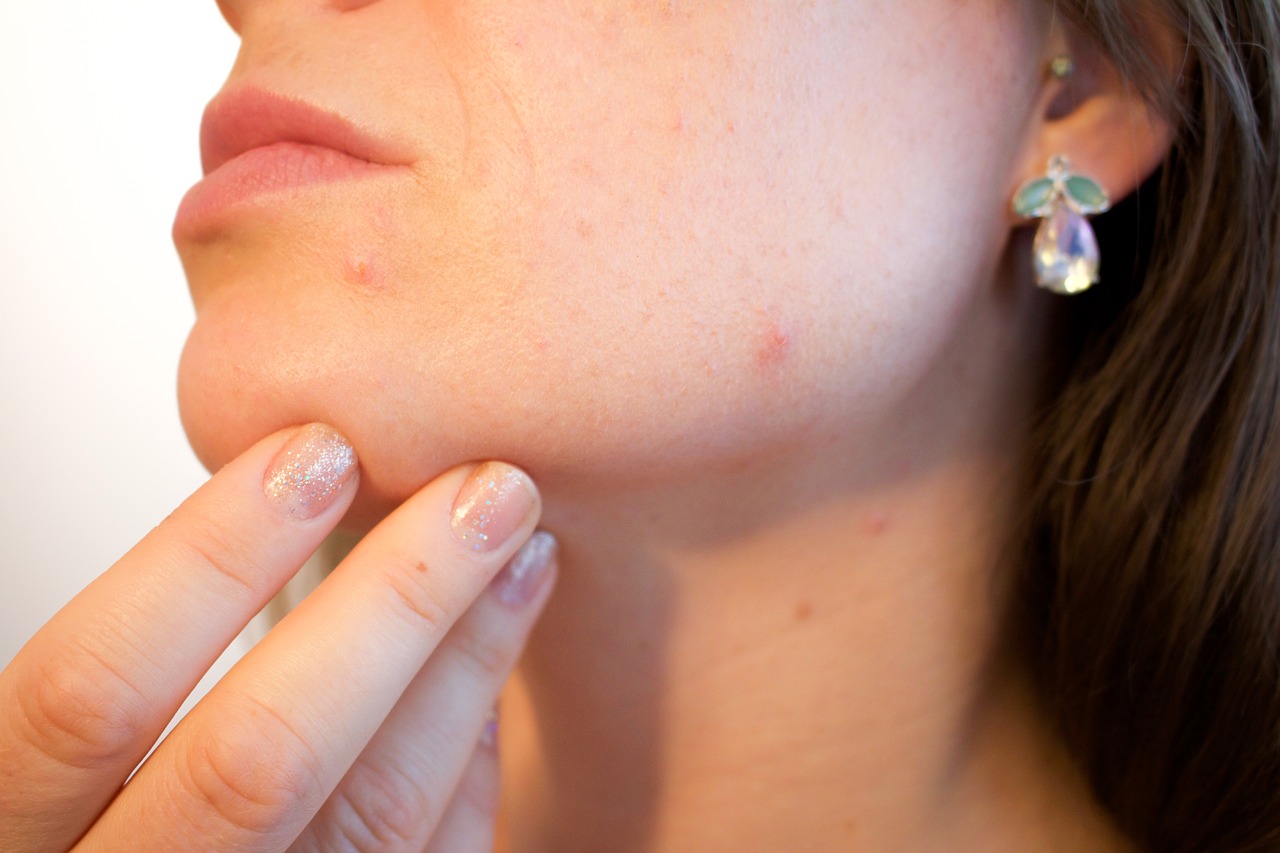First things first: Wearing face masks is a must. However, our prolonged period of wearing these protective pieces of cloth, especially for those who are already physically reporting to work, may have caused noticeable clusters of acne around the mouth—aka the area that these masks cover.
“Wearing a mask all day creates heat and humidity that, when mixed with the bacteria we breathe out in the mask, can easily result in clogged pores and acne,” dermatologist Dr. Patricia Wexler told People.
“Masks trap your breath, which keeps the inside of your mask humid,” dermatologist Dr. Sameer Bashey also told GQ, noting that the so-called “maskne” is a kind of “occlusive” acne. This type of acne is caused by impermeable and tight-fitting materials that a person wears directly against their skin for a long period of time which “traps pore-blocking dirt and sweat.”

However, occlusive acne isn’t very new. You may have experienced or heard of it before, but only through headbands, wristbands, caps or helmets. The easiest and most foolproof way to let your acne heal or subside, prevent further damage to your skin and avoid these types of breakouts would be to stop wearing the material that irritates your skin—but this is a huge no for masks right now, especially when you have to go out.
So how do you deal with “maskne” without discarding the essential face mask? Here are some suggestions.
Make sure your mask is clean
This applies especially to reusable cloth face masks because sweat, dirt and oil could have accumulated in the material while you were wearing it. Improperly washed face masks may even be the biggest reason behind your breakouts, and it could even put you at risk of the virus itself which might have stuck to the fabric as well, so make sure you follow our steps here. And as a reminder, it is a must to wash your face masks after every use.
Select a softer face mask
Acne breakouts may also be a sign that the type of face mask you’re wearing isn’t the right one for you. The texture of the mask might also be a reason behind the irritation that causes acne problems, especially for those with sensitive skin. Try wearing masks that are made of soft and breathable cotton instead.
Adjust your skincare routine
The point of skincare is to target your skin’s specific needs, and for now, that means sticking to a gentler routine while dealing with maskne. Switch your cleanser to gentler ones which will not strip your skin of moisture. Since it is advised that you thoroughly wash your face before and after wearing face masks, make sure to not be too harsh on your skin while scrubbing too.
You might also want to incorporate soothing creams “with ingredients like hyaluronic acid, ceramides and niacinamide” or hydrating moisturizers which will both help maintain your skin’s barrier to fight off irritation into your regular routine.
Skip the makeup for now
Your foundation and concealer might be part of the reason why your pores feel even more clogged while covered by face masks, so it may be best to skip them for now. If you really need to wear makeup, you can opt to just use it on the parts of your face not covered by the mask.
You can also try the usual solutions for regular breakouts, such as adjusting your diet, getting better sleep or using products targeted at controlling acne.
Header photo by Juraj Varga from Pixabay
Get more stories like this by subscribing to our weekly newsletter here.
Read more:
A handy guide to practical skincare during quarantine